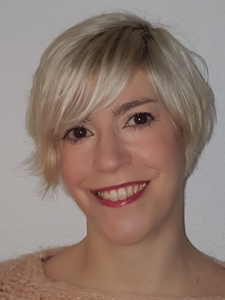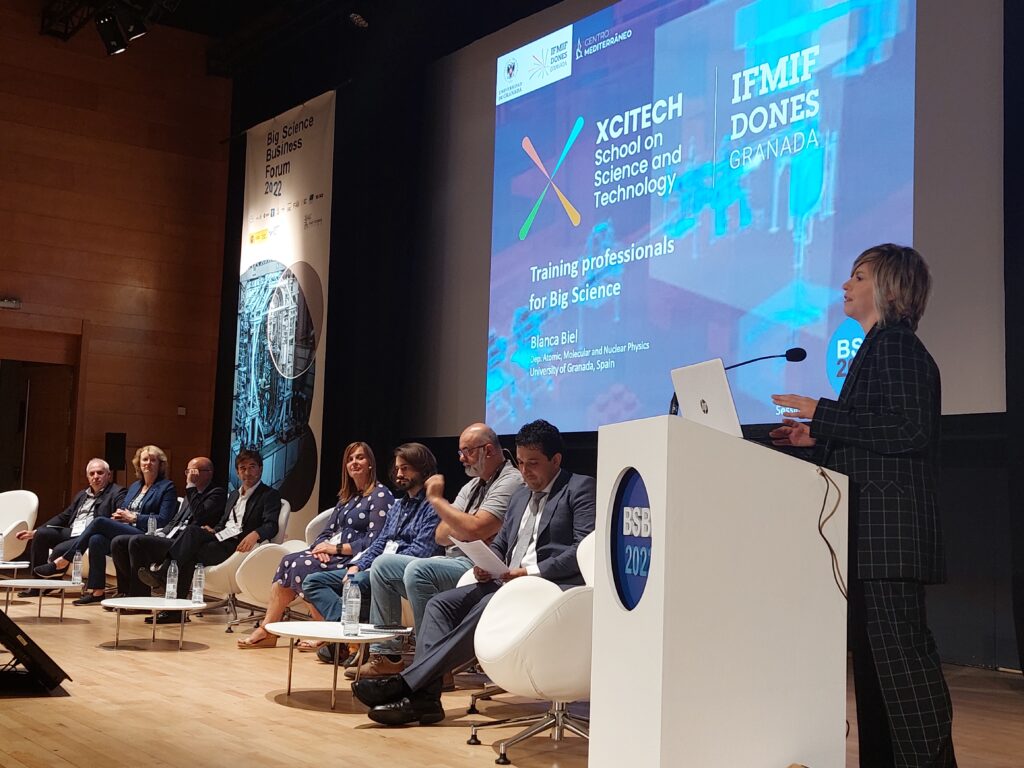Interview with Blanca Biel, co-director of DONES Xcitech School
Posted on |
Blanca Biel (Zaragoza, 1975) holds a degree in Physics from the UGR (1999) and a PhD in Physics from the Universidad Autónoma de Madrid (2006), and works as a full professor in the Department of Theoretical, Molecular and Nuclear Physics of the Faculty of Science at the University of Granada. She is currently co-director of the DONES Xcitech school.

Question: Why did DONES Xcitech School come into being?
Answer. There are several reasons. On the one hand, we need more training programmes in large scientific facilities (known as “Big Science”), particularly fusion technologies. This is important to help connect the knowledge that is learned at the University (more academic), or in other types of facilities, with the real science, technology, or even legal needs that arise in Big Science projects.
On the other hand, in DONES Xcitech we have a privileged position since we have professors from the University of Granada who have a great experience in their respective research fields and have been collaborating with DONES for a long time. Still, we also have scientists involved in DONES since its conception, who have worked in other fusion facilities directly related to DONES, and who know first-hand the needs and challenges needed to successfully develop a project of this magnitude and with these particular characteristics. Finally, due to the project’s relevance, we have access to world-renowned people in extensive scientific facilities and fusion who contribute their vision of the issues to be addressed. All this gives DONES Xcitech a unique character.
Q. Who is the main target audience of this high-level training plan?
A. We are targeting a very diverse audience: from PhD students in fusion or in technologies related to “Big Science” to scientists or engineers with experience in this field who wish to deepen their knowledge in a specific topic, to professionals from different areas who may want to get started in this exciting field. We also hope it will be a meeting point between those who offer their talent and those looking for talent for their projects.
Q. The faculty line-up for the first courses is exceptional. Does it reflect the international interest in IFMIF-DONES?
A. It certainly does. We have received a great welcome from all the teachers invited to the school, even those not working on DONES-related projects. This shows the importance of DONES at an international level and the significant boost its construction will bring to Spain, particularly Granada.

Q. “IFMIF-DONES in depth” and “Radiation effects in structural fusion materials” are the titles of the first two courses. Why these topics?
A. For this first edition, we wanted to offer a course that would provide an insight into the DONES project: its origins, the challenges it poses, its “predecessors”, lessons learned in other accelerators, its future, etc… But also successful relationship cases between companies and DONES or other large scientific facilities. The connection with the company is essential for us.
The course on materials also comes naturally, as this will be the main – but not the only – mission of DONES: to test the materials that will be used to build DEMO.
Q. Does it offer good career opportunities for those participating in these training schemes?
A. Continuous and specialised training are essential to staying current in different fields of work, especially in technological areas. This school will provide an overview of DONES and fusion energy today. In addition to the lectures, we will have two round tables where teachers and participants can discuss the future of DONES and fusion energy. This is something special, as rarely do so many relevant scientists from so many different projects come together in one place to talk freely about topics essential for the project and the entire fusion community.
Q. You have been involved in “Women in DONES” since its foundation. How do you see the role of women in the field of Fusion Energy becoming more visible?
A. The fusion field is not very different from other STEM areas. In general, there tends to be a lower proportion of women, which is sometimes even more evident in the lack of presence in positions of responsibility. This is slowly changing, but women must be more visible to be considered candidates for specific jobs. The visibility of women in positions of responsibility is also important from the point of view of creating role models for the younger generation. Organisations such as “Women in Fusion” and, more recently, “Women in DONES” are helping to raise awareness of this visibility in this sector.
On the other hand, it may still be surprising to learn that women are in high demand in certain areas, such as welding techniques. It is important to keep doing visibility work to, for example, normalise this kind of thing. Men and women are perfectly capable of doing any job with the same level of professionalism, and we can each bring different perspectives, which is very enriching for any project.
On a personal level, my experience since I started to get involved in DONES could not be better: I feel that we are genuinely appreciated and valued for our work, without paternalism (something that sometimes happens and is not good either), and that makes it very comfortable to work with the rest of the team, men and women. So I encourage all women curious to get started in this world to do it with us.

